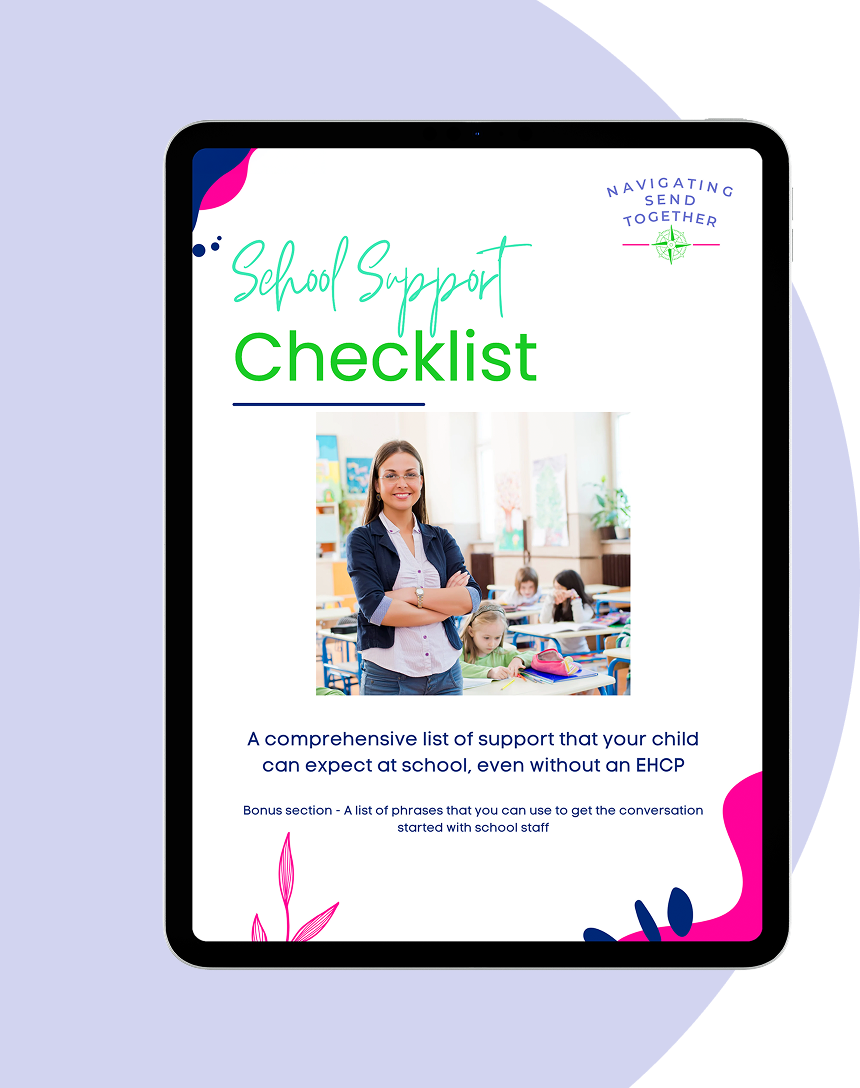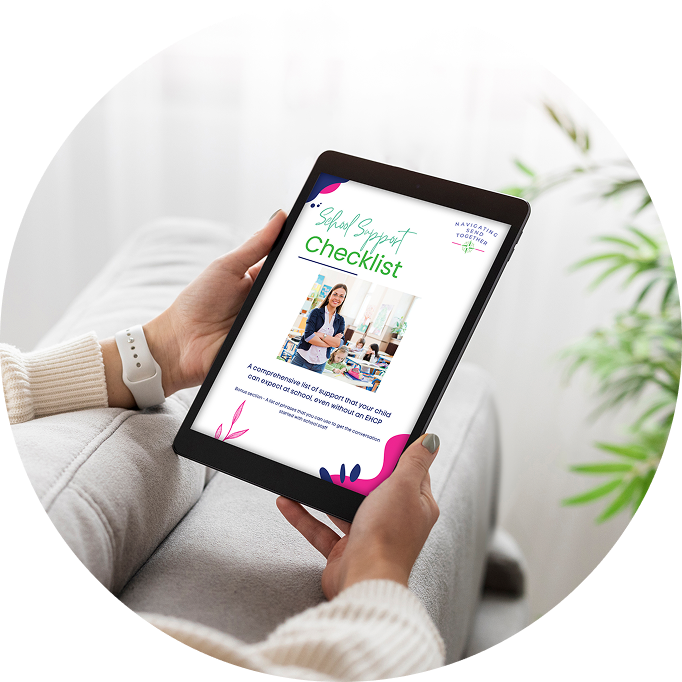
Whether your child is facing challenges due to Autism, ADHD, general developmental delay or disabilities such as Down Syndrome – you’re not alone and I’m here to help you navigate what comes next.
Practical guidance, legal know-how and lived experience – helping you feel supported, understood and ready for whatever comes next.



I’m Lindsey – a calm, experienced hand to hold when things feel overwhelming.
For over 40 years, I’ve supported children and families at every stage – from babies in their early years, to school-age children navigating classroom challenges, to teenagers preparing for life after education.
I’ve worked one-to-one in family homes, led local authority SEND services and helped families find their way through confusion, long waiting lists and endless decisions. I know just how overwhelming it can feel when no one seems to listen or the system feels impossible to navigate.

That’s where I come in. Whether you’re waiting on a diagnosis, facing school issues, stuck in the EHCP process or just worried about your child’s progress – I offer legal guidance, structured support and calm, practical help to move things forward.
I’m your calm in the chaos – professional guidance with the compassion of someone who truly cares, with no pressure, no fluff and no empty promises. Just clear advice and emotional support when you are not sure what comes next.
We’ll take it one step at a time – together.


Many parents come to me feeling unsure or overwhelmed, whether you have a diagnosis or just a gut feeling, I’m here when you are doing your best but still feel lost.
These are some of the most common challenges I support families with every day:


If you’re feeling stuck, unheard or unsure what to do next – I hear you.
Whether your child is in nursery, school or preparing for life as an adult, I’m here to help you make sense of it all, take the pressure off and find a way forward that works for your family.
You don’t have to do this alone. I’ll walk with you, one clear step at a time.



You don’t need an EHCP to get help. Schools have a legal duty to support children with additionalneeds and knowing what to ask for makes all the difference.
This free checklist is a practical tool to help you:

Some children need extra support to understand emotions. This can be linked to anxiety, trauma, autism (ASD), or SEMH difficulties. Helping them label and recognise emotions can make a big difference and there are many ways in which this can be done.
Most children will refuse to follow instructions at times. Some children struggle with this more than others but generally progress in understanding the reasons for instructions. Some children however struggle much more; this can be due to something called Pathological Demand Avoidance (PDA), which means they have very high levels of anxiety associated with requests and instructions, which can make everyday tasks very challenging. Understanding their triggers and using the right strategies can make a big difference.
Many children will find certain elements of the world and of other people quite difficult and a little scary at times. Many will become more confident as they grow. Children with anxiety may need extra support to feel safe and in control. Gentle routines, sensory breaks, and emotional coaching can help them feel more secure in their environment.
Big emotions can be overwhelming for some children, especially if they have emotional regulation difficulties or struggle to communicate their needs. Helping them find ways to express feelings can ease frustration.
This could be down to receptive language (understanding words), attention difficulties, or even auditory processing difficulties. Some children also show signs of being neurodiverse (such as Autism/ASD), which can affect communication, if you are concerned, trust your instincts and seek advice.

